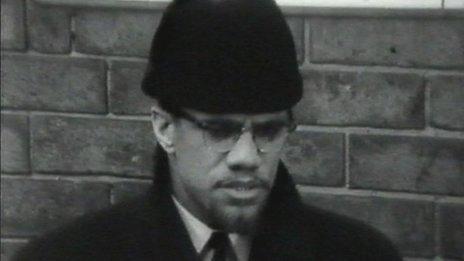The desi landlords helping to reshape British pub culture
- Published
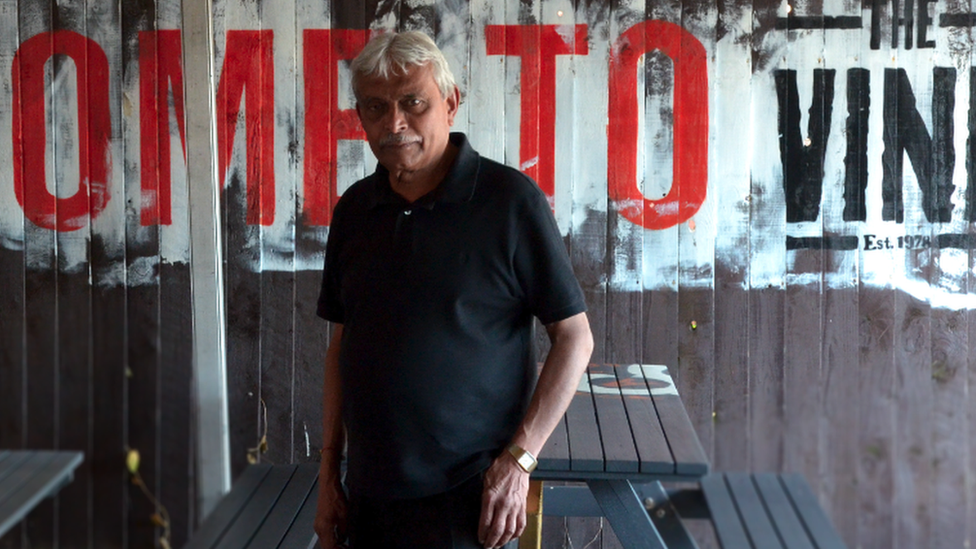
Suresh 'Suki' Patel has been running The Vine in West Bromwich since 1978.
An author has travelled the length and breadth of the country visiting desi landlords who have stamped their unique identity on the British pub scene. David Jesudason tells the BBC the "under-celebrated" history of desi pubs is one of resistance - as well as a celebration of multiculturalism.
The term "desi pub" is commonly used to described venues run by people of Indian origin offering food as well as beer, explains David Jesudason, and they were not a feature of his youth.
Growing up in a market town in Bedfordshire, he said he suffered racial abuse during his first pub experiences.
"It wasn't until I moved to London that I went to this place called the Blue-Eyed Maid with an Indian restaurant upstairs and a team of Asian bouncers that I felt safe and I could totally be myself," he said.
Since then, the author describes having an "amazing journey" - visiting pubs across the country including the West Midlands.
"They're totally under-celebrated and unrecognised," he added.
"It's not just an Asian story, it's the story of white people who saw their pubs change and become the vanguard of multiculturalism".
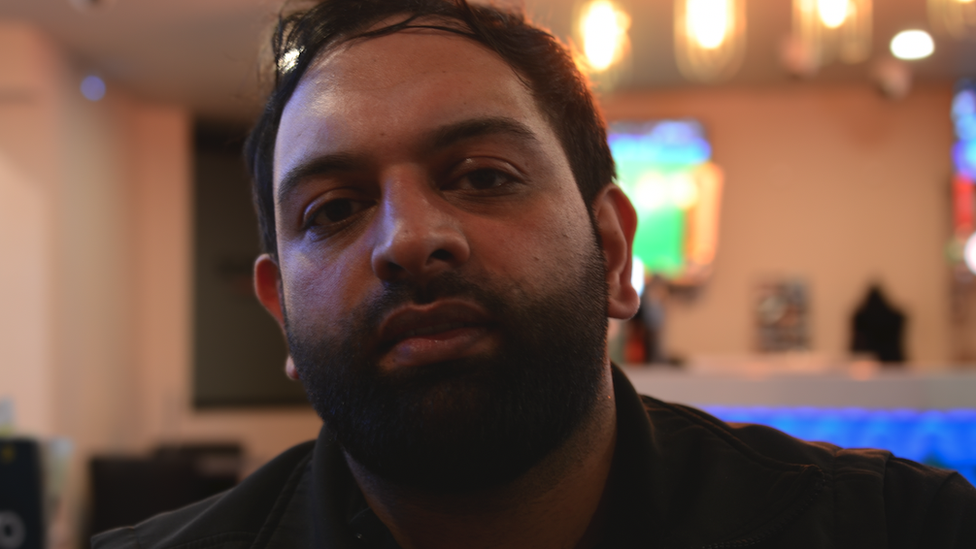
Landlord Johnny Singh has transformed a traditional Gateshead pub into a thriving business
The author, of Indian and Malay origin, explained he had not been exposed to much Asian culture growing up, "because my dad and mum brought me up to be very British, and I had a feeling that I might not fit in," he explained.
But he found trips to desi pubs "really moving".
"Most of the places I went to in the West Midlands were Punjabi, and I found it really, really empowering to see a landlord with a turban who is really proud and community-orientated," he said.
"When they first started, they were a resistance to racism - to forge a safe place for people of Asian extraction - who maybe worked in the foundries of the West Midlands, and then it became a thing where everybody was welcome."
A "strong claim" to be one of the first desi pubs in the country was the Wheatsheaf in Coventry.
In the 1960s they would hold kabaddi tournaments and have a big barbecue grill in the garden, the author explained.
"If it was a big tournament people would sleep in the local gurdwara, but would be mainly based in the pub. They were hard drinking days."
One of the longest serving landlords he spoke to for his book was 71-year-old Suresh 'Suki' Patel, who has been running West Bromwich pub The Vine since 1978.
"He started from serving workers in the foundries and factories to the football fans from the nearby West Brom ground the Hawthorns," said Mr Jesudason.
"He told me workers would come on their lunch break, and he would have pints of mild ready for them, stacked up on the bar, they'd quickly neck two pints before going back to work."
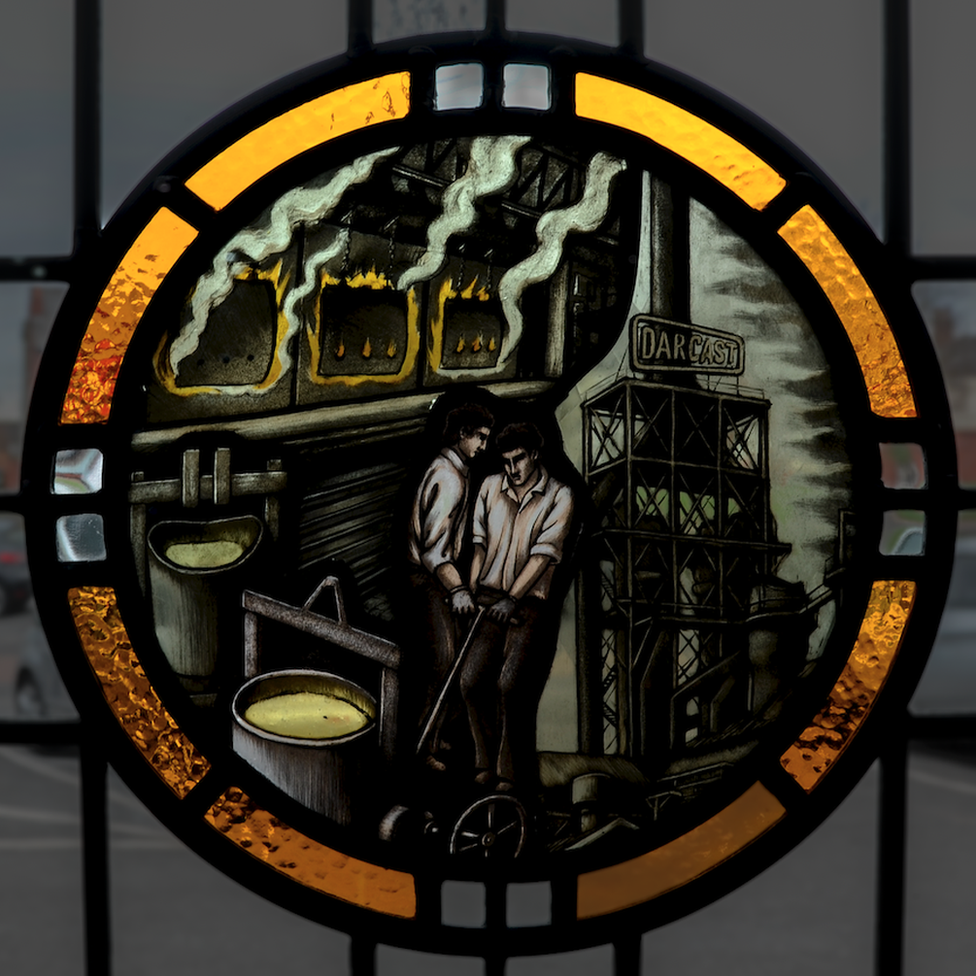
Stained glass window at the Red Lion in West Bromwich
Desi landlords often take over failing pubs, turning them into successful food and drink businesses, Mr Jesudason.
"In Gateshead, the Soho Tavern has opened up one under landlord Johnny Singh, and the previous pub on a typical day would have about 10 people in," he said.
"When I went there on just a quiet weekday evening it was full."
Many of the landlords who have taken over the pubs would have been barred from using them as recently as the 1960s, the writer added.
The colour bar operated by not allowing non-white people to enter premises, not allowing them to be served, and forcing them to drink in certain rooms, as was the case in the large pubs in Smethwick experienced by British-Asians such as Avtar Singh Jouhl.
The activist had hosted Malcolm X on a visit to the West Midlands highlighting the racism faced by non-whites in the area.
When landlord Satnam Purewal's father Jeet first took over the Red Lion in West Bromwich in 1997 he often faced hostility from fascist groups and kept a baseball bat behind the bar.
"He had to win them over, of course, and he did so deftly, proving once again that British-Indians were well-suited to running pubs," the author said.
Visiting the pub, now run by Mr Purewal, was a "moving experience", said Mr Jesudason.
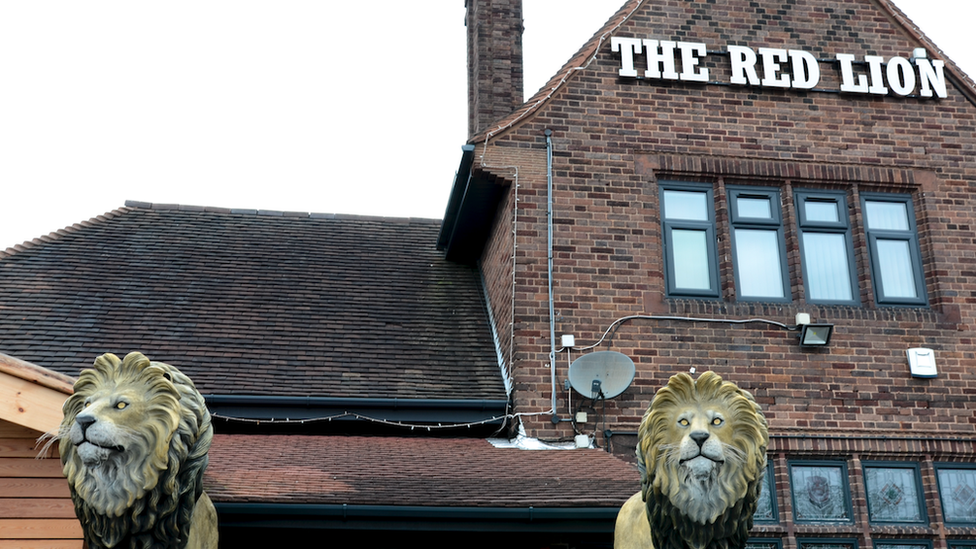
The Red Lion has been transformed into a family-friendly venue
Stained glass windows commemorate a visit by the civil rights activist Malcolm X and the toil of the Indian diaspora when they first arrived in the West Midlands, he said.
"It is now completely family-friendly, and there's even a quiet room for autistic children," he said.
"Traditionally Punjabi drinking culture was male, but what the Red Lion did was show the way of how to turn these things into very family-friendly environments," said the author.
"Pubs create social cohesion. And that's the best thing about them.
"We don't often talk about the success stories of multiculturalism, and I think that's what desi pubs really are."
Desi Pubs by David Jesudason, published by CAMRA Books, will be released on 17 May.

Follow BBC West Midlands on Facebook, external, Twitter, external and Instagram, external. Send your story ideas to: newsonline.westmidlands@bbc.co.uk, external
Related topics
- Published13 November 2021
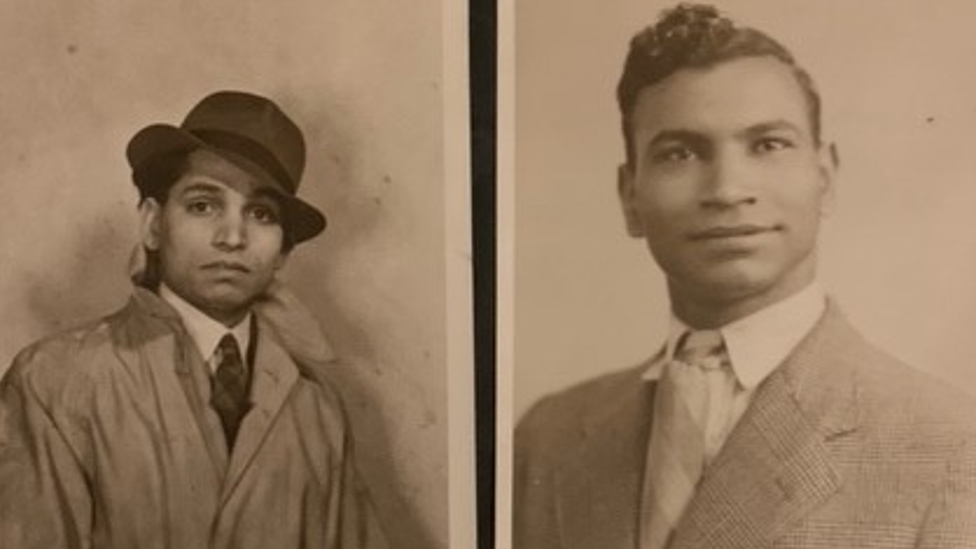
- Published12 February 2015
